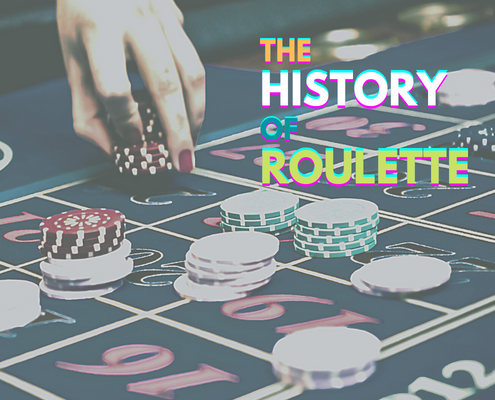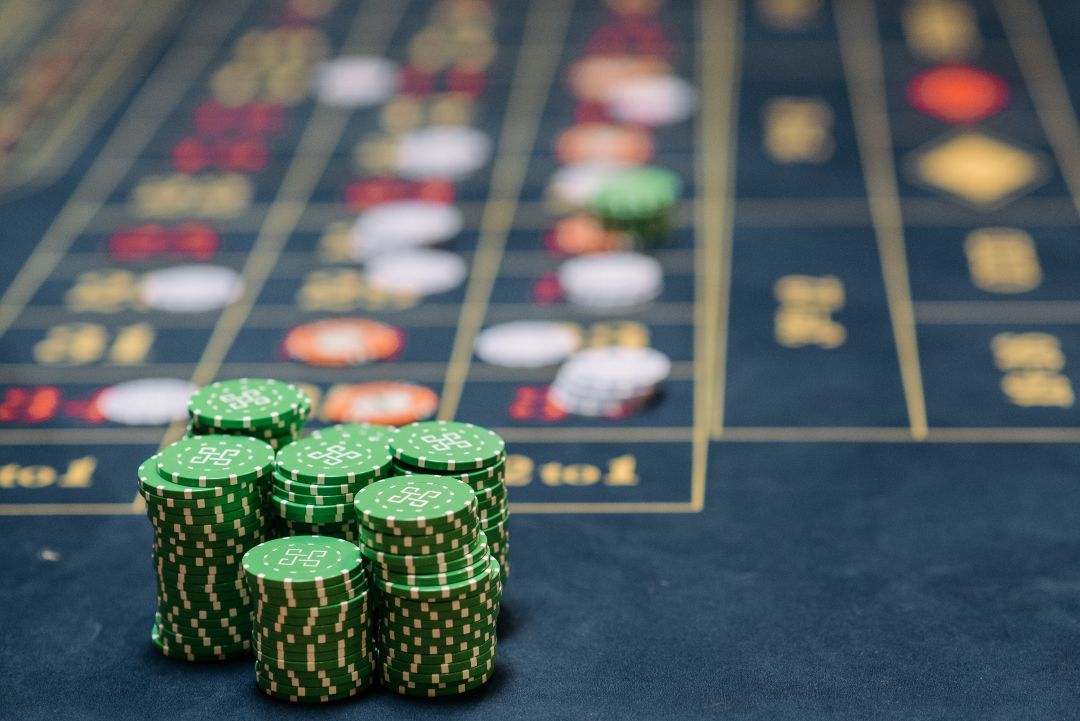The History of Roulette Explained
Table of Contents
The Origins of The Game
Roulette is believed to have originated in France in the 18th century. It is said to have been created by a mathematician named Blaise Pascal, who was working on the principles of probability. It quickly became popular among the wealthy and elite, and soon spread to other parts of Europe and beyond.
Over time, it has undergone several changes and variations, with the most significant being the addition of the double zero pocket to the American version of the game. Despite these changes, the basic gameplay has remained the same, and it continues to be a popular and widely played game around the world.
The game has a long and rich history in South Africa, and it continues to be a beloved and widely played game in the country. Whether you’re playing at a land-based casino or enjoying a game of online roulette, the excitement and thrill of the spinning wheel is sure to keep you entertained.
Who Is Blaise Pascal?
Blaise Pascal was a French mathematician, physicist, and religious philosopher born in 1623. He was a child prodigy and started his work in mathematics and physics at a young age. His work in mathematics focused on geometry and probability, while his work in physics focused on the study of pressure and vacuum. His contribution to mathematics and physics is considered enormous and he is regarded as one of the greatest mathematicians in history.
Pascal’s interest in probability was evident in his early work, where he used mathematical theories to solve gambling problems. He developed the theory of expected value, which was a revolutionary concept in the field of probability. He used this theory to study various gambling games and systems, including betting on horse racing and other games of chance.
In his search for a perpetual motion machine, Pascal ended up creating the prototype for what would eventually become the game. He used a spinning wheel with numbers and pockets to demonstrate his ideas on probability and chance. Although the perpetual motion machine never came to fruition, the spinning wheel with numbers eventually evolved into the game that we know today.
5 Facts About Blaise Pascal
- Pascal was a devout Christian and made significant contributions to the field of philosophy. He wrote the “Pensées,” a collection of thoughts and reflections on religion and spirituality that is still widely read today.
- Pascal suffered from chronic ill health throughout his life, including migraine headaches and episodes of fainting. He attributed his health problems to the intense mental strain of his work in mathematics and science.
- Pascal was only 39 years old when he died, but he accomplished more in his short life than many people do in a full lifetime. In addition to his work in mathematics, physics, and philosophy, he was also a talented inventor and engineer.
- Pascal was a pioneer in the field of computer science. He invented the mechanical calculator, which was a precursor to the modern electronic calculator.
- Pascal was a prolific writer, but many of his works were lost after his death. Some of his notes and manuscripts were recovered years later and published, but many of his ideas and discoveries were never recorded or preserved. Despite this, his legacy continues to influence the fields of mathematics, physics, and philosophy to this day.
The Timeline of How Roulette Progressed
1700s: The game originates in France, where a mathematician creates a version of the game featuring a single zero on the wheel, invented in France in the late 17th century by mathematician Blaise Pascal. He was attempting to create a perpetual motion machine but instead created the game. In its original form, the game included a single zero on the wheel and 37 pockets, with the numbers 1-36 and a zero pocket. This single zero version of the game became known as European Roulette and remains popular to this day.
1800s: The game spreads throughout Europe and the United States, with different variations of the game appearing that include a double zero and other differences. During the 19th century, gaining popularity and spread throughout Europe and the United States. American casinos added a second zero to the wheel, creating the double zero version of the game known as American Roulette. This version of the game has a slightly lower payout for players, making it less favourable compared to European Roulette.
1990s: Online casinos start to emerge, including some offering virtual versions. With the advent of the internet, online casinos started to emerge, offering players the opportunity to play their favourite casino games from the comfort of their own homes. Some of these early online casinos offered virtual versions, allowing players to play the game using computer-generated graphics.
2000s: With the widespread adoption of the internet, online Roulette becomes increasingly popular, with many new variations of the game appearing. As the internet became more widespread, online Roulette continued to grow in popularity, with many new variations of the game appearing. These variations included everything from new betting options to new wheel designs and more.
2010s: Live dealer Roulette becomes available at online casinos, offering players a more realistic experience. In the 2010s, live dealer Roulette became available at online casinos, offering players a more realistic gaming experience. With live dealer Roulette, players can watch a real dealer spin the wheel and place bets on the outcome in real-time, creating a more immersive and exciting experience.
2020s: With the rise of mobile gaming, Roulette becomes increasingly accessible, with many casinos offering mobile-optimised versions of the game. With the rise of mobile gaming, the game became increasingly accessible, as many online casinos started to offer mobile-optimised versions of the game. This allowed players to enjoy the game on-the-go and from anywhere, making it even more popular and accessible to a wider audience.
How The Game Became Popular
Roulette became popular for several reasons:
- Accessibility: introduced to the gambling world in France in the late 17th century, and soon spread to other countries due to its ease of play and the simplicity of the rules. This made it accessible to a wider audience and helped to increase its popularity.
- Versatility: The game can be played in various ways, making it appealing to a range of players. It can be played at a leisurely pace or with high stakes, and the various betting options allow players to tailor their experience to their preferences.
- Attractive Payouts: The high payout potential, particularly for certain bets, added to its appeal. In European Roulette, for example, the odds of correctly betting on a single number are 35 to 1.
- Glamour and Excitement: Roulette has always been associated with luxury and glamour, with its spinning wheel and elegant casinos. The excitement of watching the wheel spin and the anticipation of waiting for the ball to land has helped to make the game a popular and enduring game.
- Emergence of Online Gaming: The advent of online gaming in the late 1990s and early 2000s brought Roulette to a whole new audience. Online casinos made the game more accessible, and the ability to play from the comfort of one’s own home helped to increase its popularity even further.
Playing Roulette in South Africa
Roulette is a popular game in South Africa’s many land-based casinos, and it’s a great option for those who enjoy the social atmosphere of casino gaming. Whether you’re playing in a small local casino or a large, luxurious resort, you’re sure to find a game that fits your style.
Online roulette is a great option for those who prefer the convenience of playing from home. With a wide range of online casinos available, you can easily find a game variation that fits your budget and playing style. And with the added bonuses and rewards that many online casinos offer, you can enjoy even more value for your money.
Mobile roulette is another option for those who prefer to play on the go. With a wide range of mobile casino apps available, you can easily find a game variation that you can play on your smartphone or tablet. Whether you’re waiting for a bus or sitting in a coffee shop, mobile roulette is a great way to pass the time and enjoy some excitement.
Conclusion
So, there you have it – everything you need to know about playing roulette in South Africa! From its rich history to the latest betting strategies, you now have all the knowledge you need to get started. But knowledge is nothing without action, and it’s time to put your skills to the test.
So why not visit ZAR Casino, where you can play the best roulette games from the comfort of your own home? With its wide range of online and mobile options, you’re sure to find the perfect game to suit your style and budget. And with generous bonuses and rewards on offer, you can enjoy even more value for your money. So what are you waiting for? Happy spinning!




